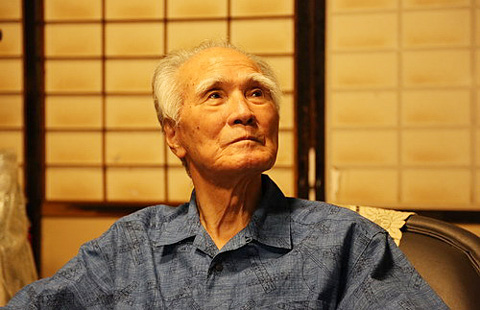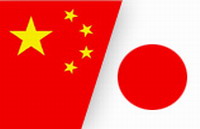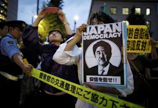Ex-Japanese PM: Abe should not visit Yasukuni Shrine
[2014-08-13 15:18]Yasukuni was a Shinto site where Japan honored its fallen soldiers. Now it pays homage to war criminals. Those prime ministers who make pilgrimages to the shrine should be publicly criticized.
Japan's defense report defends ambitions with old excuses
[2014-08-06 15:49]To the surprise of no one, Japan's defense white paper for 2014, published on Tuesday, once again played up the so-called "China threat" to lend support to its own military buildup.
Abe needs a new storyline for his drama
[2014-08-06 07:04]With his domestic support on the decline, Shinzo Abe has reached the end of his diplomatic tether and should admit that playing the "China threat" card has not helped to win him the public's approval.
Japan's naming farce can't change Diaoyu's sovereignty
[2014-08-04 14:08]In a move that certainly angered China, Japan announced Friday that it gave names to 158 remote islets, including five islets belonging to China's Diaoyu Islands in the East China Sea.
Abe should open his eyes to reality
[2014-07-10 07:26]It was really a clumsy decision for Australia to move toward a de-facto military alliance with Japan after the latter violated its pacifist constitution.
Abe's normal state is simply abnormal
[2014-07-10 07:26]There are many in the West, and indeed in Japan, who do not understand why the past cannot be buried and why Japan's wartime aggression is held against it.
Beware of Japan's evil designs
[2014-07-09 07:41]China is surrounded by complicated maritime disputes with Japan, Vietnam and the Philippines, but these countries seem to be acting on the instigation of the US, and are not in a position to engage in a large-scale military conflict or war with China.
Abe extends military under US' wing
[2014-07-08 07:31]The right to collective self-defense is a watershed in Japan's post-war diplomacy. The world needs to watch closely where the country is heading.
Japan must face up to past
[2014-07-08 07:27]Reinterpretation of constitution and denials of facts show Abe and his cohorts have not learned the lessons of history.
Necessary anniversary
[2014-07-07 07:10]All members of China's leadership are expected to attend the ceremony to mark the 77th anniversary of the War Against Japanese Aggression on Monday.
Truth about Japan's atrocities
[2014-07-04 08:40]In order to achieve the status of being a "normal country", the Shinzo Abe administration in Japan has been doing everything it can to bury the country's criminal war record.
Editorial: Japan opens Pandora's box
[2014-07-02 07:49]Prime Minister Shinzo Abe's Cabinet has effectively gutted the war-renouncing Article 9 of Japan's postwar Constitution.


